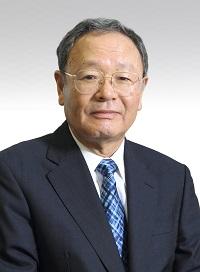Greetings from the President

As the new president of the Japan Foundation for Aging and Health, I would like to extend my heartfelt greetings to you. On this occasion, I have thought over what actions are required of the Foundation and what my roles are in them. The Japan Foundation for Aging and Health was established in 1989 with the aim of facilitating the establishment of the National Center for Geriatrics and Gerontology.
This means that the government was already foreseeing what kind of problems and challenges would arise in the coming aging society and was preparing to deal with them. Considering the current situation in Japan and the world, I cannot help but be deeply impressed by the insights of our predecessors. The National Center for Geriatrics and Gerontology was established in 2004 as the last one of the six national center of Japan. A ceremony was held to celebrate its launch with distinguished guests such as Their Imperial Highnesses Prince and Princess Hitachi, the Minister of Health, Labour and Welfare, and the governor of Aichi Prefecture. Appointed as the first president of the National Center for Geriatrics and Gerontology, my close relationship with the Foundation originated in this period of time.
Although the National Center for Geriatrics and Gerontology became an independent administrative institution in 2010, as is suggested by the word "National" that remains attached to its name, the mission of the Center remains unchanged, which is to serve the nation, mainly by making proposals in the area of medical policymaking. Despite the legal changes in the relationship between the Foundation and the Center as a result of the transformation of the National Centers into independent administrations, I believe that the mission and purpose of the Foundation and the Center to cooperatively tackle the issues of aging remain unchanged.
What actions are required of the Foundation in the rapidly aging society of Japan? How should we respond to physical and mental changes that develop with aging, such as frailty and dementia, along with changes in our lives and society as a result of the increase in the number of elderly people? How can we confront these questions, the like of which humanity has never experienced and for which it has no answers readily to hand?
During the Great East Japan Earthquake and the series of floods caused by torrential rains, many elderly people lost their lives. Although it is true that we become weaker as we get older, it is obvious that infants and toddlers are even weaker than elderly people in the sense that they cannot survive on their own. However, infants and toddlers live with their parents and are protected by them at all cost. In contrast, it will become ever harder to protect elderly people in society, where elderly and single-person households are very common.
Regarding the pandemic of the new coronavirus infections, likewise elderly people represent the dominant group in the death toll. Considering the situation that doctors in some countries have to determine priorities in using life-saving devices in ICUs, I cannot help but wonder how the factor of agedness is assessed on such occasions and, in what manner of aging society elderly people can live safely and comfortably.
I love the phrase: "a society where people are happy to live a long life," originally used by former Prime Minister Junichiro Koizumi in his second policy speech, and often use it. Although, unhappily, he ended his administration without going into details of what kind of society he meant by "a society where people are happy to live a long life," the truth is, I suppose, no one knows the answer--either then or now.
What kind of society allows more people who are born, grow, become old, and die in Japan to say at the end of their lives, despite all the things they experienced, "I am happy to have lived a long life?" It would be my greatest pleasure if I could be of any assistance in helping the Japan Foundation for Aging and Health to provide even a part of the answer to that question.
Shinichi Ohshima
President
The Japan Foundation for Aging and Health
